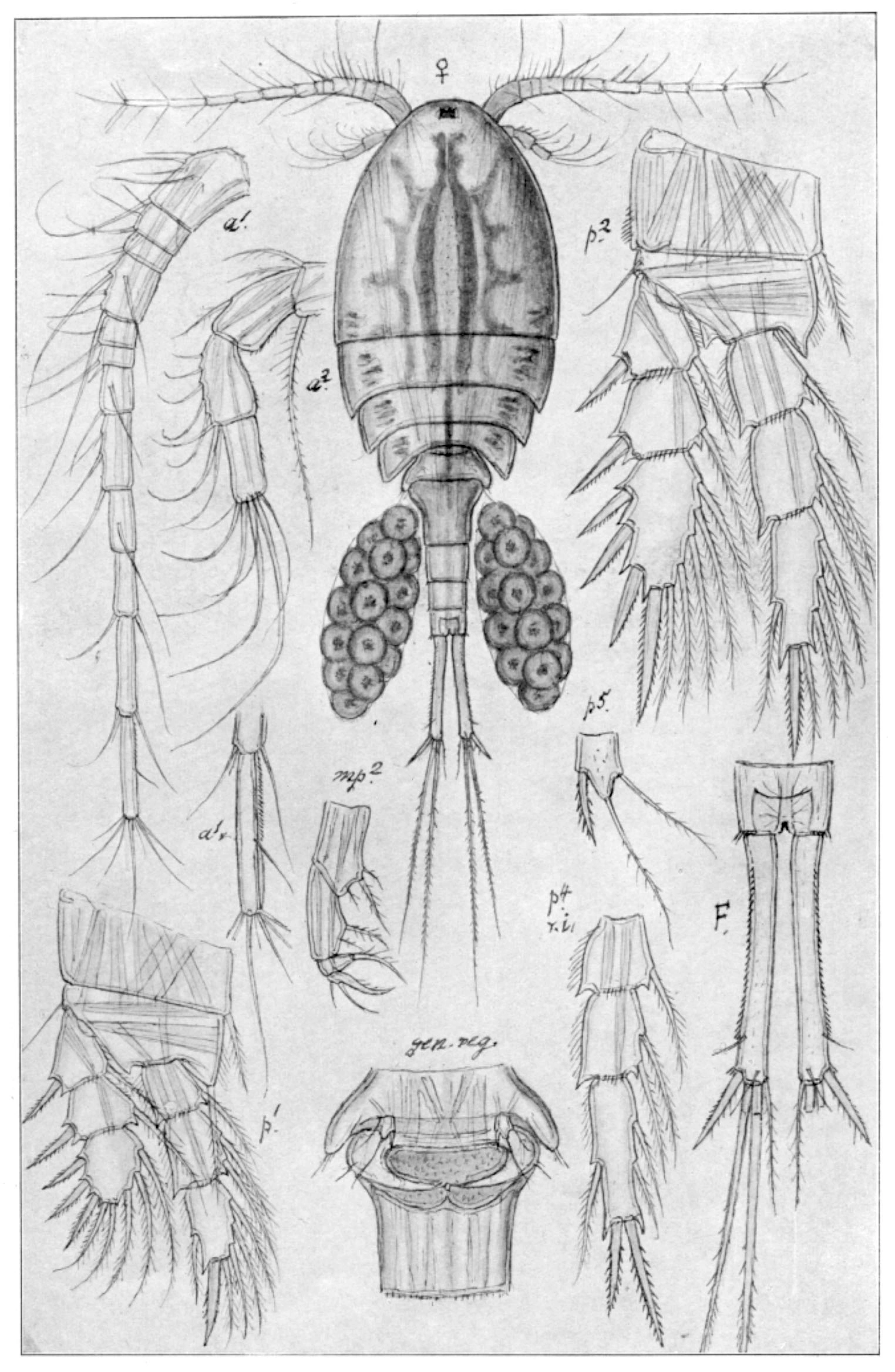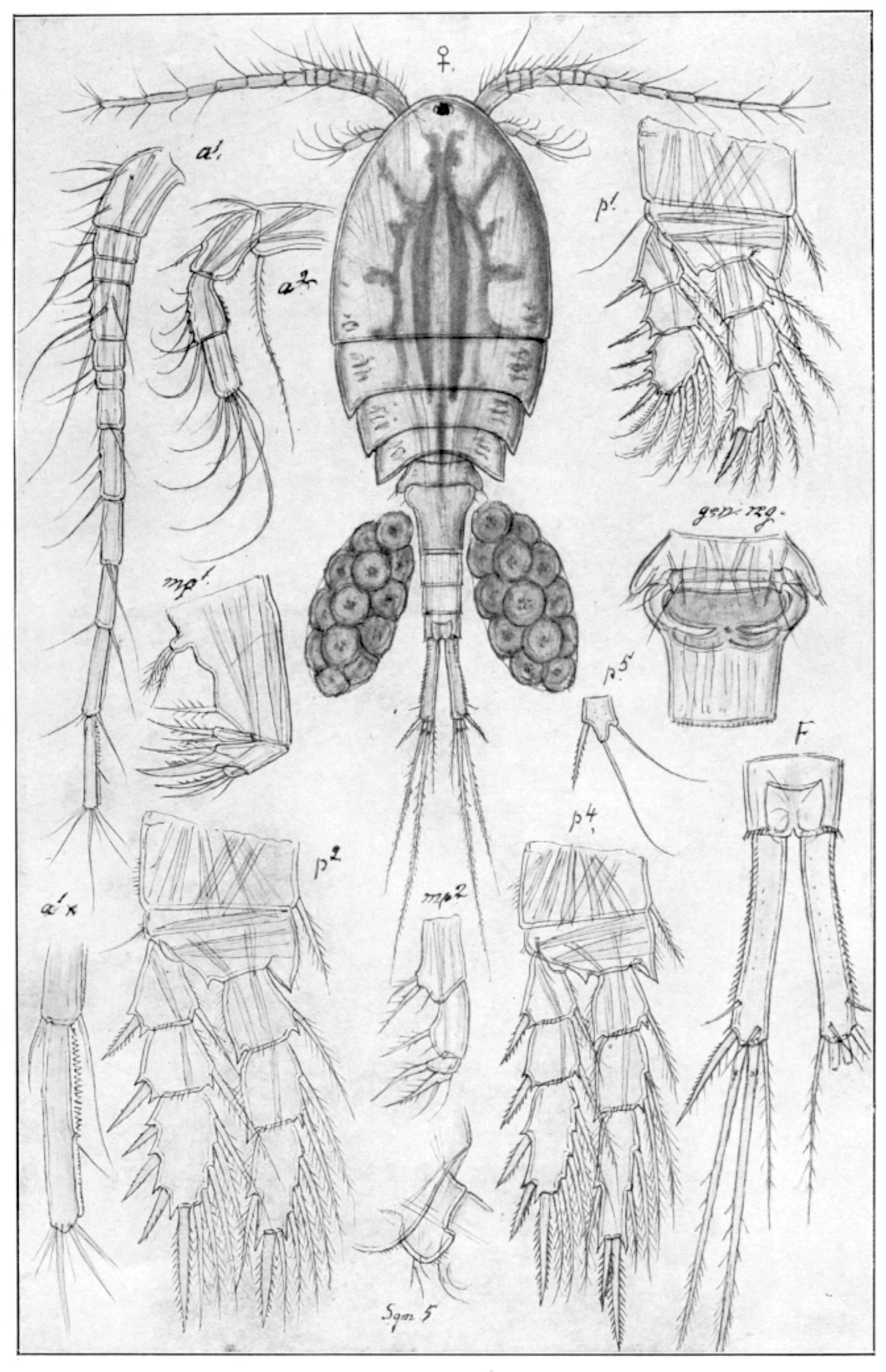Eucyclops macruroides
Eucyclops macruroides has a furca which is about 8–10 times as long as wide and where the outer margins of each branch have a row of strong teeth. It is considered as very acid sensitive and is mainly distributed in the southeastern part of Norway.
Key characteristics
Eucyclops macruroides (female)
Eucyclops macruroides has a body which is quite slender and with a long furca which is about 8–10 times as long as wide. The outer margins of each branch of the furca have a row of strong teeth. The proximal parts of the last segments of the first antennae have more than 20 small teeth. E. macruroides has a light yellowish grey colour.
Female: Length 1.2–1.5 mm
Male: Length 0.7–0.9 mm
Ecology and distribution
Among the Eucyclops species, E. macruroides is quite rare, occurring in less than 4 % of the localities. It is mainly distributed in three areas; the southwestern lowland, the southeastern and the northernmost parts of Norway. The species is most common in water bodies situated below 300 m a.s.l., though it is recorded at 900 m a.s.l. E. macruroides inhabits the vegetation both in small pools and in the littoral zone of larger lakes. Except for two records, it is only found in water bodies with pH>6.0. E. macruroides occurs in waters with conductivity ranging from 1.9 to 53 mS/m.
| Vitenskapelig navn | < 4,5 | 4,5 - 4,9 | 5,0 - 5,4 | 5,5 - 5,9 | 6,0 - 6,4 | 6,5 - 7,0 | 7,0 - 7,4 | > 7,5 |
|---|---|---|---|---|---|---|---|---|
| 0 | 0 | 0 | 2,4 | 5,6 | 5 | 6,9 | 4,8 |
| Vitenskapelig navn | < 1,0 | 1,0 - 1,4 | 1,5 - 1,9 | 2,0 - 2,9 | 3,0 - 3,9 | 4,0 - 4,9 | 5,0 - 6,9 | 7,0 - 9,9 | > 10,0 |
|---|---|---|---|---|---|---|---|---|---|
| 0 | 0 | 0,4 | 3,3 | 1,3 | 4,9 | 10,6 | 11,1 | 5,3 |
| Vitenskapelig navn | < 0,01 | 0,01 - 0,09 | 0,1 - 0,9 | 1,0 - 9,9 | 10,0 - 99 | 100 - 999 | > 1000 |
|---|---|---|---|---|---|---|---|
| 1 | 2 | 1,9 | 2,4 | 3,9 | 5,8 | 15,2 |
| Vitenskapelig navn | < 100 | 100-299 | 300-499 | 500-699 | 700-999 | >1000 |
|---|---|---|---|---|---|---|
| 5,5 | 6,5 | 2,4 | 0,3 | 0,6 | 0 |
Look alikes
Eucyclops denticulatus

